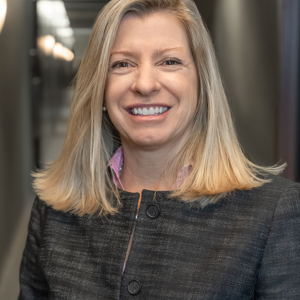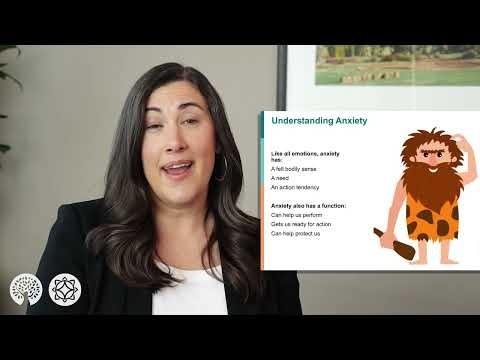
What is an anxiety disorder?
Everyone feels anxious from time to time, but some people feel so worried or fearful that their feelings negatively affect their school, work, relationships or home life.
Anxiety disorders can cause a great deal of distress, including emotional problems, sleep issues, and other physical symptoms.
Anxiety disorders are among the most common mental illnesses in the U.S.. It is estimated that 1 in 5 adults will be affected by an anxiety disorder in a given year.

Real People. Real Stories. Real Progress.
Our expert care teams ensure people of all ages, races and gender identities get the exact support they need at each stage of their recovery. With the right care, lasting healing is possible – and we have the data to show it.
81% of patients say they are likely to recommend Pathlight
Types of Anxiety Disorders
Generalized Anxiety Disorder
People with generalized anxiety disorder experience excessive anxiety and worry about multiple situations, out of proportion to actual dangers or threats. The anxiety is experienced most days for an extended period of time. Anxiety may appear at home, at work, at school or in all settings. Typically, the individual is unable to control their anxiety, leading to a number of distressing anxiety symptoms, including:
- Feeling keyed up or on edge
- Tiring easily
- Having trouble concentrating or one’s mind going blank
- Frequent muscle or body tension
- Irritability
- Problems with sleep
For a diagnosis of generalized anxiety disorder, the anxiety must cause significant problems at school, at home, at work or in one’s personal relationships.
Social Anxiety Disorder
People with social anxiety become very anxious or afraid during, or in anticipation of, specific social situations, including:
- Speaking with others or being observed by others
- Meeting new people
- Performing in front of others
The individual fears that they will offend someone or be negatively judged, embarrassed or rejected by others. Their anxiety is present in almost all social situations, and they may try to avoid these situations. Some people only have social anxiety in certain settings or with certain people. Symptoms tend to last for six months or more.
Panic Disorder
A panic attack is a highly distressing experience of intense fear that is accompanied by distressing thoughts or uncomfortable body sensations. Panic attacks come on fast and out of the blue, peaking within minutes. Symptoms of a panic attack include:
- Heart pounding or heart palpitations
- Sweating, shaking and trembling
- Feeling shortness of breath or unable to catch one’s breath
- Chest pain or stomach discomfort
- Dizziness or feeling like the room is spinning.
- Chills or feeling very warm
- Fear of dying or “going crazy”
While many people have an occasional panic attack brought on by a stressful situation, some people have multiple, recurrent and unexpected panic attacks. The individual worries about having more panic attacks, leading the individual to change their behaviors in order to avoid having a panic attack.
Agoraphobia
Agoraphobia is when an individual worries that they might have a panic attack (see symptoms of panic attack on this page) or that something embarrassing or harmful may happen in certain places. The fear and worry are out of proportion to the actual risk of danger or harm. People with agoraphobia are afraid or anxious in specific situations, including:
- Being in an enclosed space
- Being in an open space
- Using public transportation
- Being in a crowd or standing in line
- Leaving the house or being alone outside the house
Due to their intense anxiety, people with agoraphobia try to avoid the situations they fear, and this can lead to persistent, significant distress, interfering with one’s ability to thrive in school, work or social settings.
Separation Anxiety Disorder
A person with separation anxiety disorder becomes anxious or afraid when separated from an attachment figure, like a parent. This anxiety and distress is persistent and negatively impacts their ability to function. While this is normal and to be expected in babies and toddlers, an older child or an adult may have developmentally inappropriate separation anxiety. They may fear that they or their attachment figure will be harmed during the separation. Thus, they refuse to leave home or are afraid of leaving home without their major attachment figure(s). Nightmares and other physical symptoms may be present. While separation anxiety disorder is the most common anxiety disorder in children, adults can also be diagnosed with separation anxiety disorder.
Specific Phobia
While it is normal to be fearful in certain dangerous situations, a person with a specific phobia will almost always become avoidant, overly anxious or fearful when exposed to a specific object or situation. This fear is out of proportion to any actual danger present and causes a significant amount of distress. Examples of specific phobias include public speaking, flying, spiders and snakes. Children with specific phobias may display crying, tantrums, clinging or freezing. In older populations, falling is a common phobia.
Causes of Anxiety
A number of factors can increase one’s risk of having an anxiety disorder:
- Anxiety commonly runs in families; if a close family member has anxiety, then you may be more likely to also have anxiety
- Stressful events can increase the likelihood of developing anxiety
- Having a shy temperament is associated with anxiety
Females are 60 percent more likely to develop anxiety disorders than males.
Anxiety disorders can be debilitating and make life very challenging; anxiety disorders are the number one cause of emergency room visits each year.
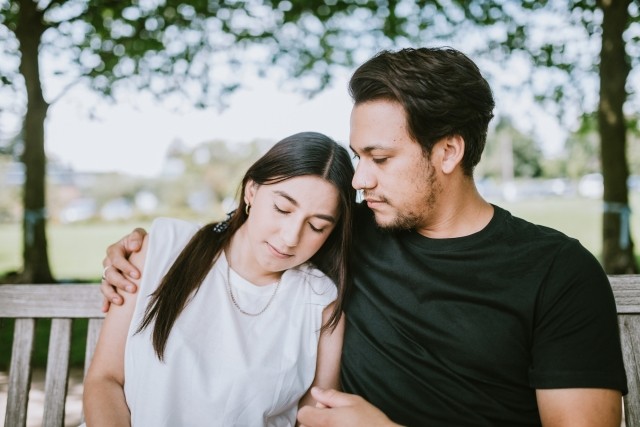
High-functioning anxiety
People with anxiety disorders experience anxiety, worries or fears to a degree so intense that it interferes with their ability to perform daily activities (work/school) or form healthy relationships with others.
Other people may experience a great deal of anxiety but still be able to manage their daily responsibilities. This is known as high-functioning anxiety.
Learn more about high-functioning anxiety, what it is, and how to get help.
Symptoms of Anxiety
There are a number of different anxiety disorders and there are a number of different anxiety disorder symptoms, including the following:
- Feeling nervous, wound up, on edge or restless
- Having trouble controlling thoughts of fear and worry
- Feeling irritable
- Having trouble sleeping
- Having feelings of panic (sudden attacks of intense fear)
- Being afraid of, or avoiding, certain places or types of places
- Feeling very self-conscious or worried in front of others
- Worrying about being rejected by, or offending, others
- Worrying about an event days or weeks before it happens
- Having trouble making or keeping friends
- Worrying about leaving loved ones, or feeling unable to do so
- Other physical symptoms: heart pounding, heart palpitations, blushing, sweating, trembling, shaking, shortness of breath, choking, headaches, stomachaches, dizziness, muscle tension, or feelings of impending doom
Anxiety disorders are among the most common mental illnesses in the U.S.. Approximately 1 in 5 American adults are affected by anxiety disorders each year.
Health Risks of Anxiety
When a person becomes anxious, a flood of chemicals is released into the body. At its most extreme, this is known as the fight, flight or freeze response. This response is preparing the individual to act quickly in case they are in a life-threatening situation. But, people with anxiety disorders have this response often, even when they are not in life-threatening situations. This can result in uncomfortable emotional and physical symptoms and even lead to health problems.

Anxiety Treatment
Many people experience anxiety in today’s hectic world. In fact, approximately one in five people in the U.S. are currently living with an anxiety disorder. For some people, anxiety is beyond an annoyance; an anxiety disorder is a debilitating problem that interferes with one’s ability to function at their best and enjoy daily life.
If that sounds like you, or someone you love, we can help.
At Pathlight Behavioral Health Centers, our mental health clinicians guide individuals with anxiety to learn ways to effectively manage — and reduce — their distress so that they can experience relief and return to living more fully.

Get matched with the exact support you need.
With one conversation, our mental health professionals will help you better understand what you’re going through and what you need.
We will meet you where you are, listen to your story in a therapeutic setting, and match you with the level of support that meets your struggle.
Effective Treatment for Anxiety
With so many centers offering anxiety treatment, how do you choose where to go? A number of factors may influence your decision-making process, and one of those factors should be the experience and expertise of the clinicians and leadership at the treatment center.
The following qualities of our staff continue to make Pathlight a well-respected, go-to treatment provider — even for patients with the most complex anxiety issues.
- Our professionals focus on evidence-based treatments for anxiety that have proven results.
- Our doctors and therapists are highly educated and credentialed. Pathlight Behavioral Health Centers employs many MDs and PhDs/PsyDs.
- Our staff value and pursue ongoing education and training on the latest, most effective treatments that help patients overcome anxiety, such as exposure and response prevention (ERP), Dialectical Behavior Therapy (DBT), and Radically Open DBT (RO-DBT).
- Our clinicians are trained to be culturally competent and are experienced in working with patients of all genders and from diverse backgrounds.
- Our experts are familiar with treating a range of severity, a range of diagnoses, and a range of different life experiences.
- We are dedicated to collecting and analyzing patient outcome data in order to understand areas of effectiveness and areas for continued growth
Every day we teach patients how to address their anxiety, including managing obsessions, specific phobias (flying, public speaking), social anxieties, and other fears and worries.
Should you choose treatment with us, our supportive staff will guide you on your own unique path to emotional wellness — offering you the tools and teaching you the skills that you will need to navigate your journey to recovery.

Understanding Anxiety & Its Purpose
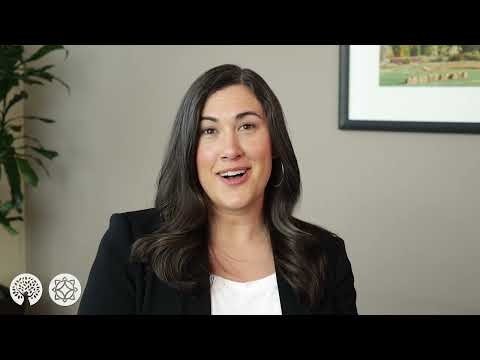
Anxiety: Taking Action by Building Awareness
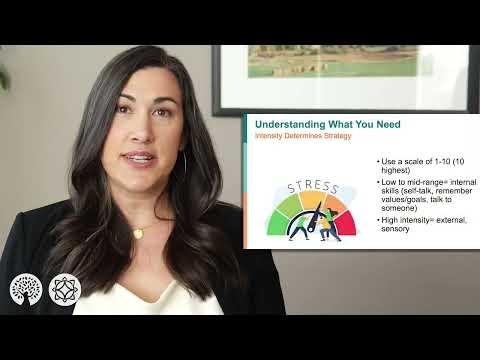
Anxiety: Simple Skills for Change
Effective Therapies for Anxiety Disorders
At Pathlight, we are proud to offer effective, evidence-based treatment modalities and medications to help you develop and maintain a healthy and more balanced life. When you choose Pathlight as a treatment center for an anxiety disorder, our primary treatment goals will be to:
- Help you understand what anxiety is and why it occurs
- Teach you about the causes and triggers of anxiety
- Guide you to a place where you can live a life where anxiety is no longer in charge of your behavior
- Introduce you to skills to regulate your thoughts, emotions, and physical, as well as behavioral reactions
- Support you as you move towards your life’s values and goals
All of our therapists and psychiatrists are thoroughly trained and supervised by advanced-level clinicians. These individuals have certifications and specific skills training in the evidence-based therapies that are shown to be the most effective therapies for anxiety:
- Dialectical Behavior Therapy
- Cognitive Behavioral Therapy
- Exposure and Response Prevention
- Radically Open-Dialectical Behavior Therapy
- Acceptance and Commitment Therapy
- Behavioral Activation
- Mindfulness
In addition, our on-site psychiatrists provide regular medication management for all of the patients in our Residential and Partial Hospitalization programs (PHP).
During your time at Pathlight, a primary goal of anxiety treatment will be to learn how to regulate your emotions safely and effectively. To support our patients in these transitions, our therapists will work with you to address wellness of your mind, body and spirit with Experiential Therapies (movement, art and yoga).
Anxiety treatment is customized to each individual and we do our best to ensure that each patient receives the most specialized therapy in their work with us. Each week, your individual therapist will work closely with you to make sure that you are making progress in treatment.
Levels of Care for Anxiety Treatment
How do you know if Pathlight Mood & Anxiety Center is right for you? You are eligible to seek treatment at Pathlight if you need more intensive support than is offered in an individual, outpatient setting.
We offer several levels of care to meet your needs. You are able to move up and down through the levels of care based on your needs during anxiety treatment, which makes it more likely that you can receive start to finish care with us and retain your treatment team throughout the process, rather than moving between programs when your needs change. This vertically-integrated treatment design is one of the hallmarks of the excellent care we provide for our patients.
During intake, our compassionate Clinical Assessment team will work with you to determine the ideal level of care for you.
Following treatment, we will continue to offer ongoing support. Alumni events help to keep you focused on anxiety recovery and connected to the larger community of people pursuing similar goals.
Find Relief from Anxiety
Whether you are seeking therapy for yourself or looking for treatment for your loved one, you’re probably wondering how effective anxiety treatment is at Pathlight.
We find that most of our patients experience a significant reduction in symptoms in the first 11 days of treatment. Over the first month of treatment, you will become familiar with the therapies that we use, and you will begin to use the skills from these therapies.
If you’re like most of our patients, you will soon notice a significant increase in the following areas:
- Feeling more accomplished
- Noticing an increased quality of your relationships
- Finding more meaning in your life
- Feeling more positive emotions
Our patients experience statistically significant decreases in these areas following treatment:
- Depression
- Anxiety
- Dysfunctional attitudes
- OCD
- Trauma
Other positive outcomes noted by patients in our care include:
- 84 percent of patients who completed our partial hospitalization program reported feeling satisfied with their treatment.
- 89 percent of patients who completed our intensive outpatient program reported feeling satisfied with treatment.
- 86 percent of patients completing PHP and 90 percent of patients completing IOP said that they would refer a friend or family member to our treatment center.
From your first call to us until you leave our care — and beyond — we will guide you on the path to recovery that works best for you. We are very proud of the work we do every day as we support individuals towards better mental health and greater engagement and fulfillment in their lives.
Please call us at (877) 715-1878 for a free, confidential consultation with a Master’s-level clinician or to learn more about treatment options for anxiety.
Family Involvement in Anxiety Treatment
Family support and involvement is key to helping people in treatment for anxiety. In order to overcome debilitating anxiety, significant life changes are often necessary. We encourage family members to support their loved one’s recovery by participating in some of our family-oriented therapies and programs, including:
- Free online caregiver support groups
- Virtual Family & Friends Education Series
- Family therapy
- Family Days
- Multi-family education groups

Anxiety Facts and Statistics
- Anxiety disorders are the most common mental health conditions in the U.S., affecting nearly 40 million adults, and these numbers are on the rise.[1]
- 19.1 percent of adults in the U.S have an anxiety disorder while 7% of children aged 3-17 struggle with anxiety.[1]
- Risk factors for anxiety include having experienced shyness, nervousness or distress when approaching new situations as a child.[2]
- Traumatic or stressful events in childhood and adolescence may increase the chance of developing an anxiety disorder.[2]
- Some health conditions, including heart arrhythmia (irregular heartbeat) and thyroid problems can cause symptoms of anxiety.[2]
- While benzodiazepines can offer short-term relief from anxiety, people can build up a tolerance to these medications over time. Higher doses become necessary, and people can become dependent. Please talk to a medical provider before taking these medications.[2]
- Many substances can worsen anxiety, including caffeine, cold medicines, herbal supplements, alcohol, and illicit drugs.[2]
- Nearly one in three adults (31.1%) in the U.S. will have an anxiety disorder at some point in their lives.[3]
- 31.9% of adolescents in the U.S. show a lifetime prevalence of an anxiety disorder, with females (38.0%) more likely to suffer than males (26.1%).[3]
References
[1] National Alliance on Mental Illness: Anxiety Disorders. Accessed December 2, 2022.
[2] National Institute of Mental Health: Anxiety Disorders. Accessed December 2, 2022.
[3] National Institute of Mental Health: Any Anxiety Disorder. Accessed December 2, 2022.
Anxiety Disorder FAQs
What can anxiety feel like?
Anxiety feels different for each individual. Common anxiety symptoms include:
- Feeling nervous or scared
- An increased heart rate
- Sweating, trembling or shaking
- Increased energy or feeling tired
- Trouble concentrating
- Headaches, stomachaches, or digestive problems
- A desire to avoid stressful situations
Take our brief anxiety self-assessment test to learn more.
How can I know if I have anxiety?
If you experience any of the following symptoms, you may have anxiety:
- You frequently worry about multiple things (work, school, parenting, relationships, etc.)
- You get nervous speaking with or in front of other people
- You often feel physically tense, keyed up or on edge
- You are often irritable or upset
What are main symptoms of anxiety?
The main symptoms of anxiety include:
- Excessive worry
- Trouble sleeping
- Headaches, muscle aches or chronic pain
- Trouble concentrating or focusing
- Feeling tired
- Feeling tense, keyed up or on edge
- Irritability or anger
- Sweating, trembling or tingling
- Feeling as though something bad will happen
- Blushing easily
- Racing heartbeat
- Irrational fears
How do you treat anxiety without medication?
Natural remedies for anxiety include exercise, meditation, time in nature and maintaining healthy sleep and eating habits. Evidence-based therapies that treat anxiety without medication include:
- Dialectical Behavior Therapy
- Cognitive Behavioral Therapy including Exposure and Response Prevention and Behavioral Activation
- Radically Open-Dialectical Behavior Therapy
- Acceptance and Commitment Therapy
- Mindfulness
Does anxiety worsen with age?
Data from the National Health Interview Survey shows that anxiety rates are highest among those aged 18-29, decreasing with age, with higher rates among women than men. Data from the National Comorbidity Survey Replication showed similar results, with anxiety rates highest among people aged 18-44, then declining with age.
What does anxiety do to your body?
Anxiety has clear physical effects on the body and can lead to chronic health problems. Common physical effects of anxiety include:
- Headaches, including migraine
- Back pain, chest pain, neck pain or chronic pain
- Stomach issues
- Dizziness or feeling lightheaded
- Racing heartbeat and heart palpitations
- Sweating, trembling, shaking
- Fatigue
- Trouble sleeping
How long does anxiety usually last?
For some people, anxiety can be a temporary feeling, decreasing quickly. Others may feel anxious for days or weeks on end, without any breaks at all. Without treatment, anxiety disorders can get worse over time.
Does anxiety cause mood swings?
People with anxiety can have mood swings. Many people find that underlying anxiety causes them to feel irritable, resulting in frequent mood swings. Mood swings can also follow common anxiety triggers like hearing bad news or realizing one must do something that scares them, like flying or public speaking.
Do I have anxiety?
If you find yourself feeling anxious, scared or worried more than you’d like, and it’s causing problems at home, at work, at school, or in your personal relationships, you may have anxiety. Take our brief self-assessment anxiety test to find out if you have anxiety.












